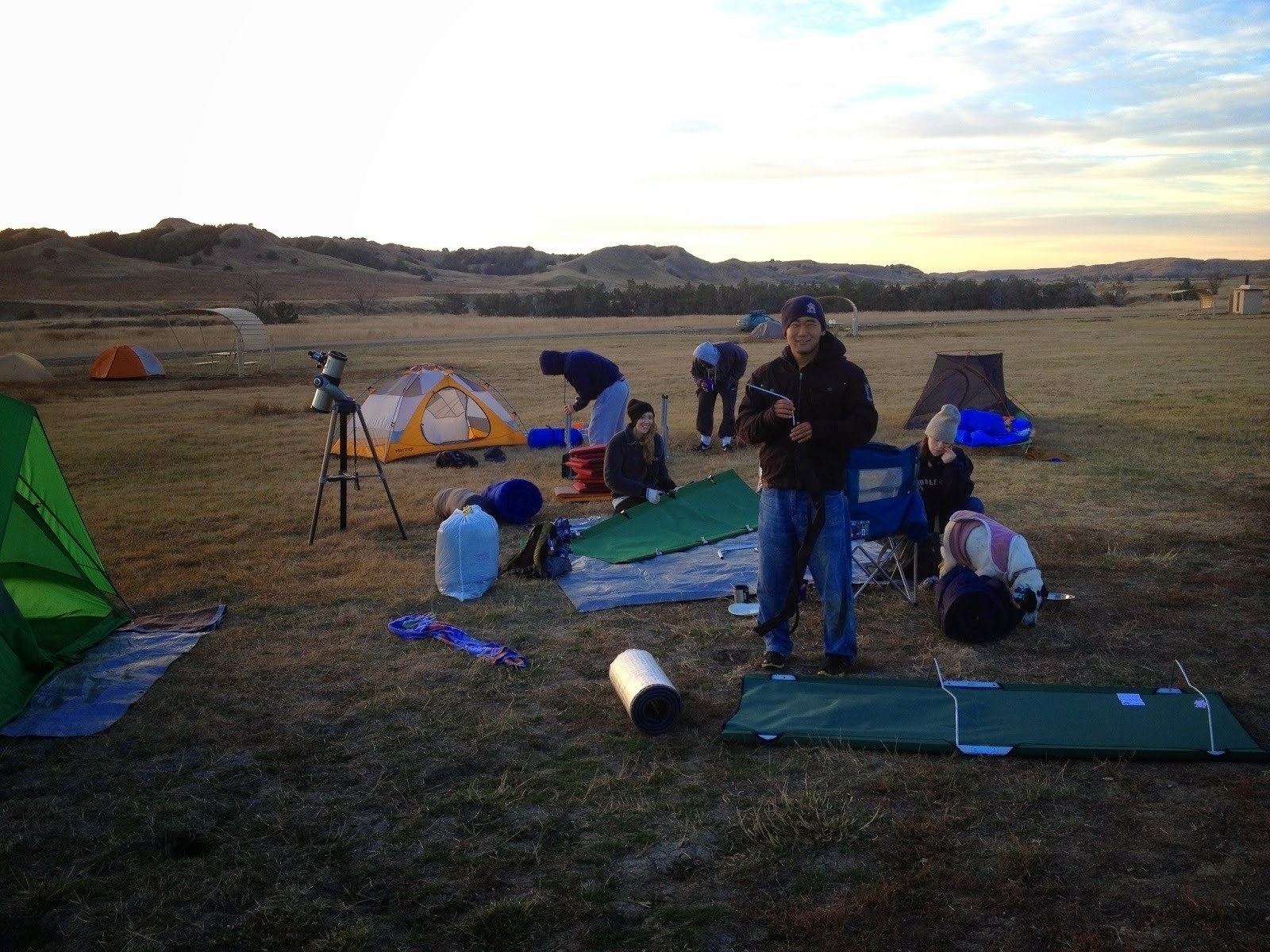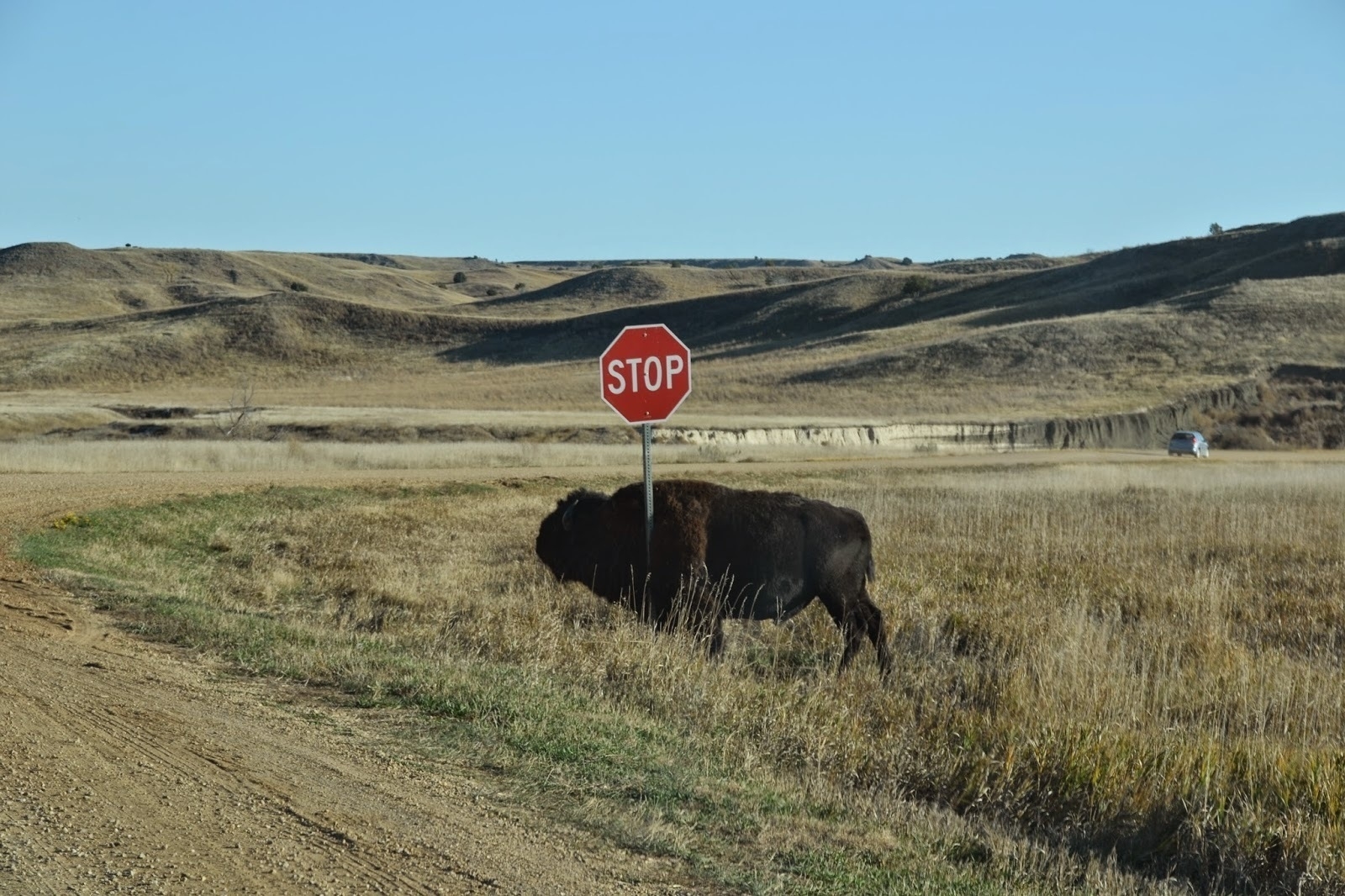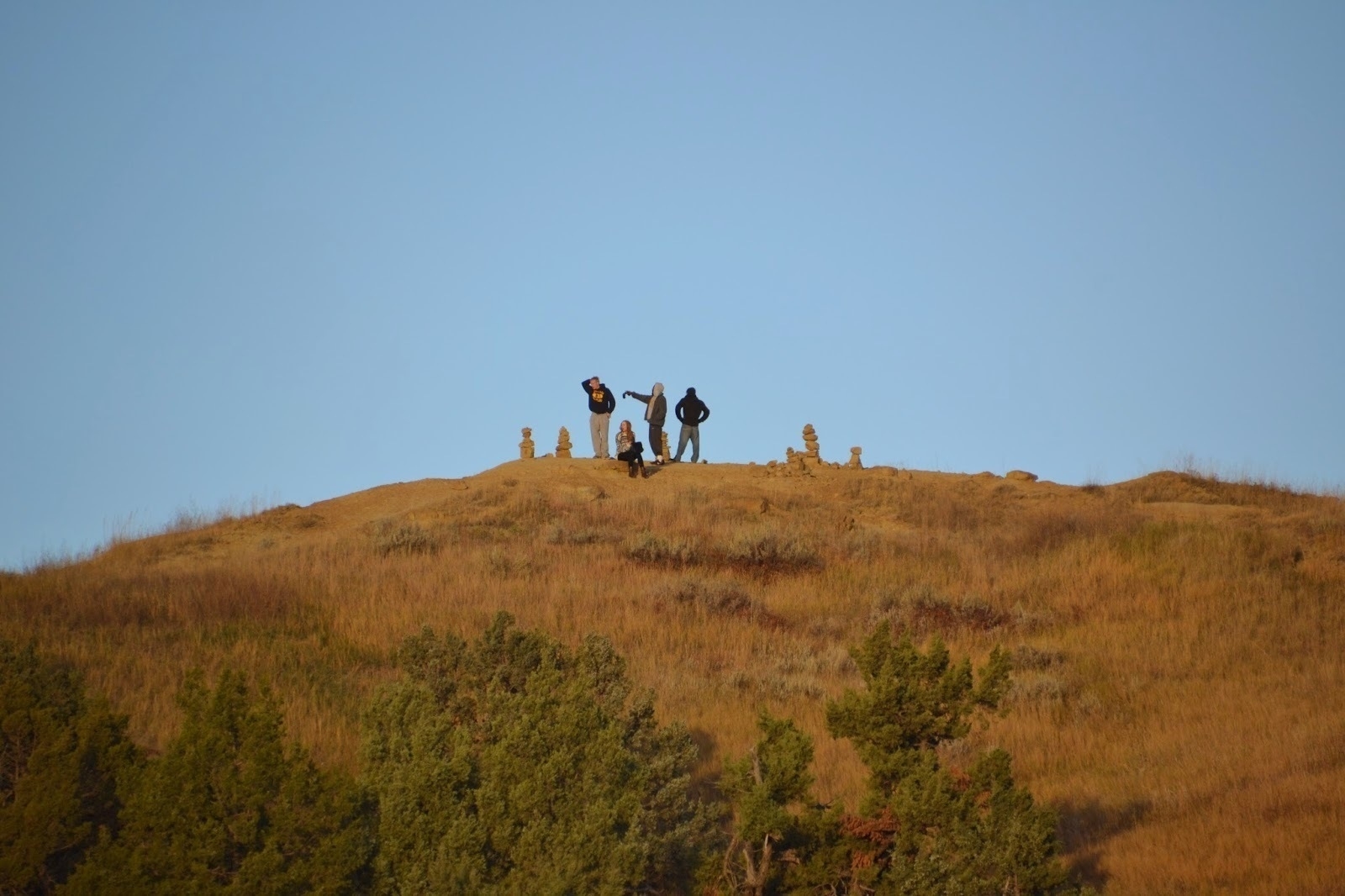Badlands
Poem: Sage Creek
Here are the first few lines:
Halfway through the fall we drive west, far from urban glow,You can read it all here.
To see the stars that we have never seen at home.
We go to the Badlands, at night, to the primitive campground
And listen to the coyotes singing from rim to rim
Of the valley where we are trying to sleep.
The voices of three packs rise like questions:
Who are you? What are you doing here?
*****
Sage Creek
Halfway through the fall we drive west, far from urban glow,
To see the stars that we have never seen at home.
We go to the Badlands, at night, to the primitive campground
And listen to the coyotes singing from rim to rim
Of the valley where we are trying to sleep.
The voices of three packs rise like questions:
Who are you? What are you doing here?
Weary from driving, observe how much you want to stay awake
Now that you are here. Explain
And give examples
From all your senses.
If the wind blows across sage, then what follows,
and how do you first know it?
What is the feeling of the prairie wind at night,
And why is it now new to you?
Dry weeds crunch under sleeping bags stretched out under the cold, living sky.
Our arms swing to point at Orionid flares.
We speak in the whispers of worshipers entering a cathedral for the first time.
How long have we lived here,
On the prairie, and never felt it on our skin, all night long?
Compare and contrast
The Milky Way.
Before tonight, you have never seen it turn.
Consider all the stars,
And the difference between reading about them and watching them slowly slip across the sky.
Wake to the feeling that it is not yet dawn, but no longer night.
With your eyes still closed, ask yourself how you saw it,
How this dry land exposes you to yourself.
For a little while, you hold your eyes closed,
And remember the bright green lines of shooting stars.
Holding still, you listen:
This is the sound of bison, breathing. Nearby
The staccato chickadee and the whirling meadowlark
Greet the new day
In this place we have so long avoided.
The prairie dogs at the edge of the campground eye us warily, and bark a warning
As we load the car for the drive home.
*****
David L. O’Hara
(2015)
Printed in Written
River, Issue 10, 2016, Hiraeth Press.
The whole issue might be available on Kindle, here.
Camping With My Students: Stargazing in the Badlands
 |
| We set up tents, but we rarely use them. Much nicer to sleep under the stars. |
Each fall I look for an ideal weekend to take my Ancient and Medieval Philosophy students stargazing. An ideal weekend counts as one where we will have clear skies, a new moon, and reasonably warm weather so we can spend a lot of time outside.
Several times over the last ten years, the weather's been so good that we've been able to go out to a primitive campground (i.e. one where there is no electricity and almost no urban glow) in the Badlands National Park.
On such nights, in such places, the sky glistens with stars. The Milky Way is a bright band across the night, and meteors punctuate our views each hour.
I tell my students that this is an optional trip. They don't get credit for coming, and they don't lose any credit for staying home. It's a four-hour drive from our campus, so it's a real commitment of time on their part. Their only rewards are these: an experience of what the Norwegians call friluftsliv, a beautiful night under the stars in a remote and lovely place, and free pancakes at sunrise, cooked by me.
And yet every time I offer this trip, half a dozen or more students - and sometimes other professors - tag along.
 |
| The stop sign is just a scratching post to this bison. |
I've written before about the importance of teaching outdoors and of doing labs in philosophy. Experientia docet, experience teaches us. What we learn through lived, full-bodied experience tends to stick with us far better than what we simply hear spoken from a lectern or see on a PowerPoint slide.
We go out there, ostensibly, to see the stars. This is because I want my students to watch the skies and to imagine what it would have been like for ancient and medieval philosophers like Thales, Plutarch, Ptolemy, Eratosthenes and, even Galileo (on the cusp of the Middle Ages) to gaze at the skies and learn from their movements.
But we are really there for other reasons that are easier to show than to tell. I want them to see that ideas do not grow up in a vacuum, and that the artificial divisions between academic disciplines are really artificial and convenient. Educated people should care about all the disciplines. We should not allow them to be compartmentalized, as though philosophy and sociology had nothing to do with accounting, or physics, or poetry.
Aristotle tells us that the love of wisdom begins in wonder. I will add that experience of new things can be the beginning of wonder.
Many of my students have never heard coyotes sing. In the Badlands, they trot past our cots and tents and sing to us all night long. When we wake in the morning, we are often surrounded by small groups of bison, slowly grazing their way along the hillsides. After breakfast we climb the steep slopes and find ancient fossils.
I don't know if any of this is a desirable or assessable outcome for a philosophy class. Also, I don't care. Because all of these things are, I think, desirable outcomes for life.
Because I believe that "it is beautiful to do so" is reason enough to sleep under the stars.
